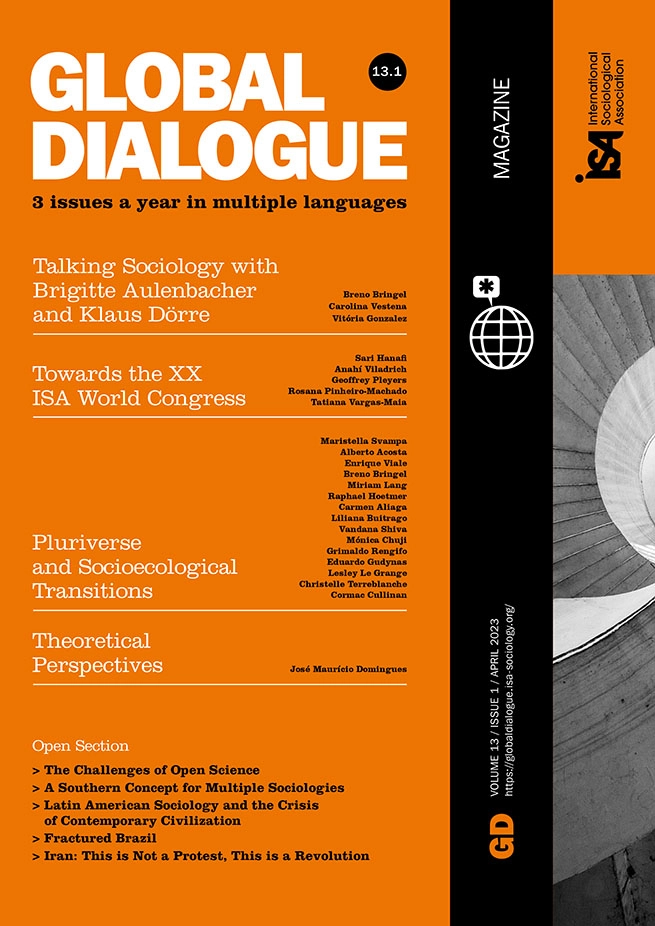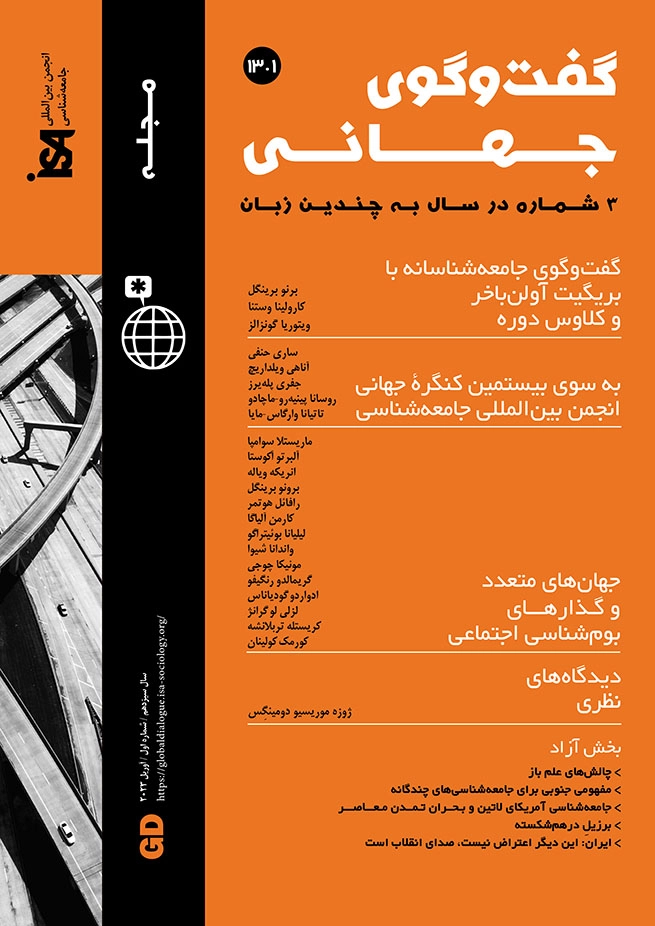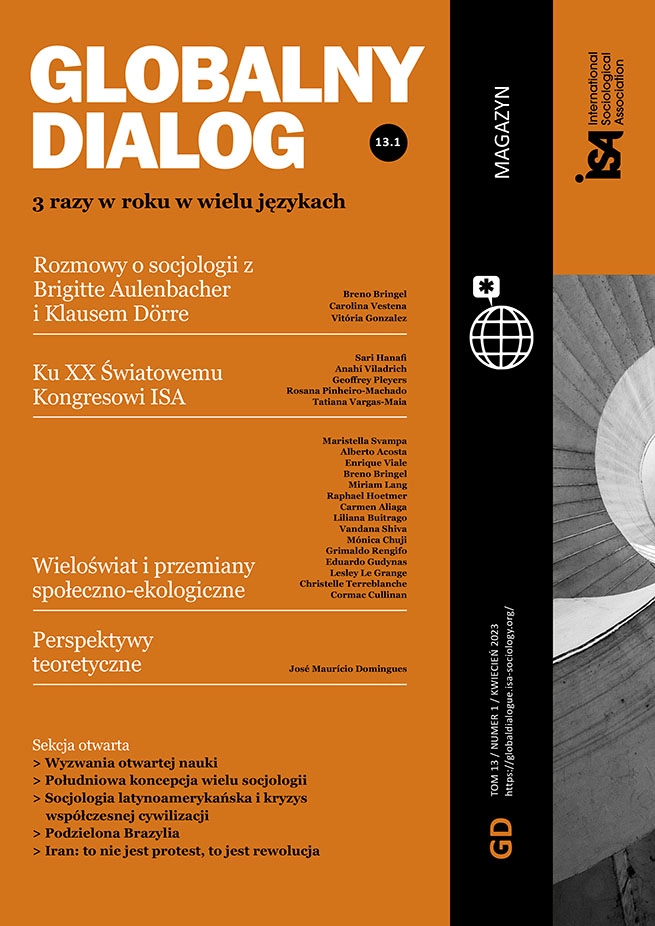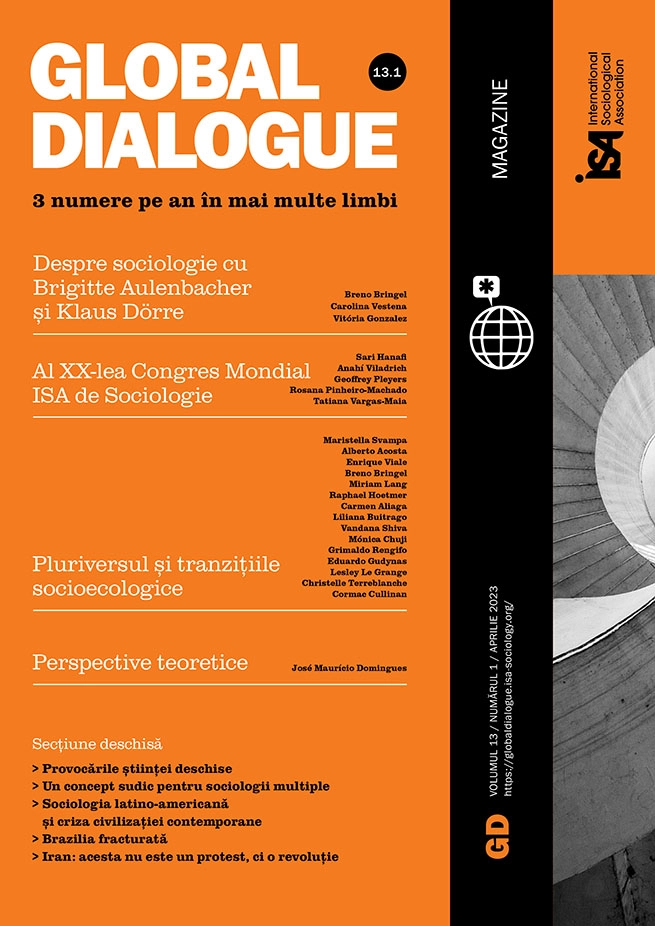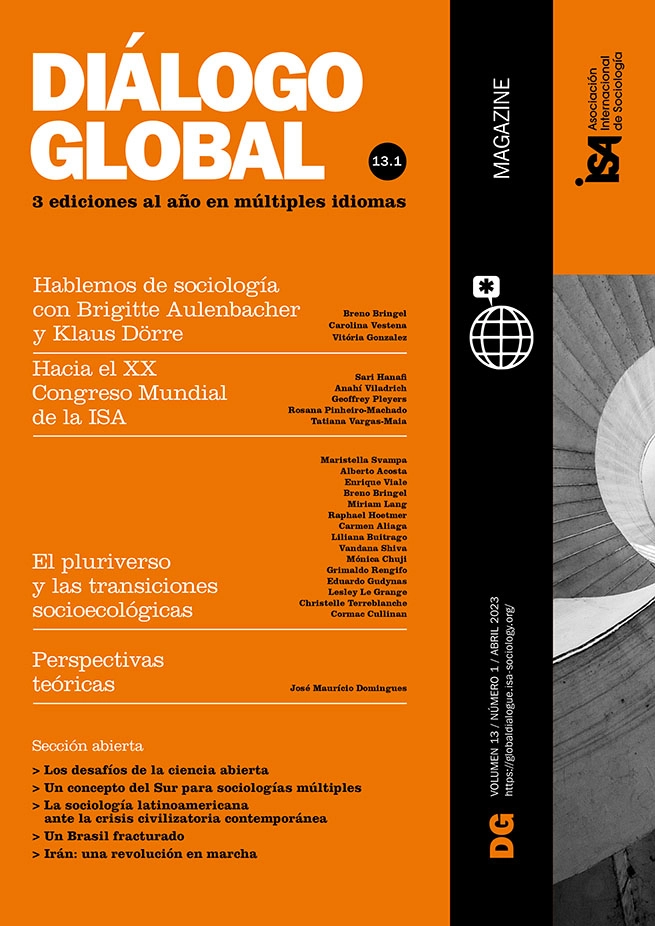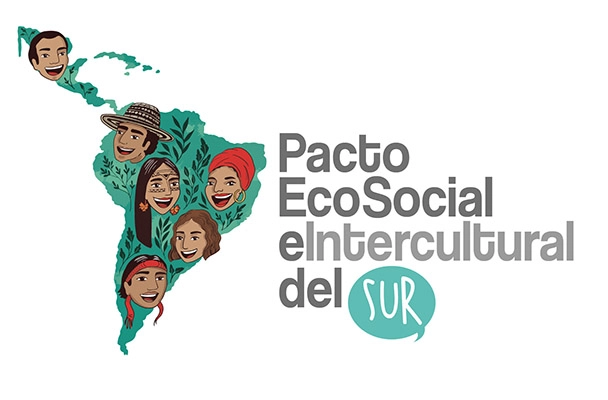The Ecosocial and Intercultural Pact of the South was formed in the first months of 2020, after the onset of the COVID-19 pandemic. Its main goal was to support a bottom-up ecosocial transition for Latin America. From its origins, the platform sought to promote, amplify, and systematize diverse local experiences linked to community control, territorial autonomies, food sovereignty, agroecology, community energy and ecofeminisms, among other struggles.
The initiative was motivated by the urgent need to respond to the different crises that the contemporary world is going through. But also to offer alternatives, in Latin American terms, to the proposals for ecosocial transitions and Green Pacts that have emerged in recent years. We understand that, in contrast with the progress that has been made in all continents through various local experiences, those hegemonic pacts are insufficient, given that they end up reproducing the status quo and exacerbating the deep geopolitical asymmetries and North–South inequalities.
More than two years have passed, and the global situation has worsened. We are now immersed in a context of war (Russia’s invasion of Ukraine), which has aggravated the energy and food crisis, and are facing the acceleration of the climate crisis. Moreover, the war has contributed to the intensification of both traditional and new forms of extractivism associated with hegemonic green transitions.
This article analyses three elements. First, we examine some key features of the hegemonic Green Pacts and formulate our critique. Next, we discuss the geopolitics of ecosocial transitions in terms of ecological debt. Finally, we highlight proposals for and challenges to the advancement of just transitions and sketch what could be a horizon of integral ecosocial justice.
The Ecosocial and Intercultural Pact of the South in the face of hegemonic Green Pacts
Faced with the inescapable facts of ecological and systemic collapse, energy transition has been taken up as a goal by broad corporate and political sectors around the world. For the most part, they see the need to reduce carbon emissions but do not question the current social metabolism of capital. Their “transition” discourses and programs are based on corporatist, technocratic, neo-colonial and even extractivist strategies which do not postulate structural transformation. From the perspective of the Ecosocial and Intercultural Pact of the South we question these approaches and recognize the need to root ecosocial transformation in a logic of global justice that is both critical of and alternative to the hegemonic proposals of transition.
In recent years, Green Deal and Green New Deal (GND) proposals have proliferated. They are diverse and heterogeneous but have generally come to form a framework for political-discursive confluence in the Global North concerning how to reduce carbon emissions and promote “equitable” and supposedly “sustainable” economic growth. Climate justice is often at the heart of the agendas of these Green Pacts, with “redress funds” earmarked for communities that have historically suffered negative environmental impacts. But all too often, climate justice stops at the water’s edge. In its eagerness to transition to renewable energy, the Global North rarely considers the impacts of this transition on the Global South. This is even the case with most of the counter-proposals formulated by various constellations of the political left, denominated Green New Deals in allusion to Franklin D. Roosevelt’s historic New Deal, which otherwise have a stronger perspective on state intervention for social policies, economic regulation and job creation, while other Green Pacts leave more room for corporations and markets to lead the transition.
In general terms, all the Green Deals in the Global North recognize the urgency of climate change and the need to combine economic justice with decarbonization. Undoubtedly, they are a step forward in the face of developmentalist blindness and denial. But even the European Green Deal, arguably the most ambitious of the governmental programs to date, does not propose a complete economic transformation and is contested by critical actors within the region. Meanwhile, the US GND is largely aspirational. It has taken the form of a non-binding resolution of Congress, but not of a law. While the GND issue was part of Joe Biden’s election platform, that same administration has already cleared millions of hectares for offshore oil development. For its part, China, despite an announcement of intentions in its latest Five-Year Plan, continues to be the country with the highest CO2 emissions in the world in absolute terms and a massive use of coal.
Many of the Green Pacts end up reducing the ecosocial transition to a market-dominated energy transition. The predominant vision is of a corporate transition in both the Global North and Global South. It can be seen as the continuity of a model, with the same logic of concentration and business as the fossil fuel regime. It perpetuates the vertical scheme of territorial intervention, typical of predatory extractivism.
An example for this corporate transition is the “lithium triangle” (northern Argentina and Chile, and southern Bolivia), where we are witnessing a reorganization of extractivism in terms of a green transition for the needs of the Global North, which requires a supply of batteries for electric vehicles. Another clear example is the deforestation of the Ecuadorian Amazon for the massive export of balsa wood, used in the construction of wind turbine blades in China.
It is essential to denounce and analyze this new intensification of extractivism in the name of the North’s “green” energy transition. What the hegemonic Green Pacts call “transition” only represents a “diversification” of the energy matrix. Even in the best-intentioned cases in the North, with real concern for uniting social justice with environmental justice, the “just transition” is often restricted to a domestic level, without considering the impact it has on the Global South.
Without a decentralization and deconcentration of energy and a change in the mode of production, these pacts promote a kind of ecological transition that does not abandon the logic of capitalist accumulation and continues to bet on infinite growth. Therefore, the unsustainability of the fossil fuel model in metabolic terms is maintained, as this growth model requires an exacerbation of the exploitation and devastation of nature.
In contrast to and in order to dispute these proposals, we propose to conceptualize just transitions from a perspective of the geopolitical South, so as not to continue to be defined and recolonized by the North. We also advocate for abandoning sectoral conceptions and developing a more multiscalar, holistic and integral vision of ecosocial transitions. An energy transition that does not address the radical inequality in the distribution of energy resources, that does not promote decommodification and decolonization, and strengthen the resilience and regenerative capacity of civil society and the fabric of life, will only produce partial reform, without changing the structural causes of the collapse.
Ecological debt and the geopolitics of ecosocial transitions
Our proposals place the geopolitics of ecosocial transitions center stage. In the long term, this implies reading North–South relations, spatialities, and flows as marked by the relationship of the historical-colonial model of dispossession in Latin America vis-à-vis capitalism–imperialism of the Global North. In the medium and short term, it is a matter of exposing the “false solutions” promoted by states and corporations and recognizing how they play a destructive role in multiple territories.
The geopolitics of ecosocial transitions has several faces. One is the increase in global inequalities associated with the intensified extraction of raw materials from Latin America. Alongside that, there is also the associated direct and negative impact on communities and the loss of biodiversity, with an extreme acceleration of species extinction and population sizes of vertebrates having declined since 1970 by an average of 68% worldwide and even by 94% in the Latin American tropics, according to the World Wide Fund for Nature. All this underlines the ecological debt. While this has its origins in colonial plunder, it is then exacerbated by both ecologically unequal exchange and the naturalized claim of environmental space located in impoverished countries by the predatory mode of living of industrialized countries.
The pressures on the environment, labor and territories caused by the export of natural resources from the countries of the South must also be considered. Ecological debt is also growing in another interrelated way, as richer countries overcome their “national” ecosystem imbalances by directly or indirectly either transferring pollution (waste or emissions) to other regions or asking them for compensation (carbon offsets) without taking responsibility for it.
The ecological debt is also climate debt and there is a huge gap in historical emissions between the Global South and the Global North. Europe and North America, for example, are responsible for more than 60% of carbon emissions since 1750, while South America is responsible for just 3%. This cannot be ignored, just as we cannot restrict ecological debt to the realm of monetary compensation. This is because the commodification of nature and the corresponding environmental cost has left and continues to leave a system of planetary exploitation that affects racialized and colonized peoples in a totally disproportionate way.
By claiming the ecological debt, we advocate for comprehensive strategies to guarantee a dignified life for the peoples of the South in terms of integral, ontological, and reparative justice. In contrast, far from reducing geopolitical gaps, hegemonic transition proposals run the serious risk of deepening the colonial and ecological debts owed to the Global South. No climate justice and no ecosocial transformation are possible without including reparations for these debts. Far from any binarism and simplism, at this point, the dialogue between the struggles and critical sectors of the Global North and the Global South is strategic, both to encourage a global debate on who owes whom, and to promote new forms of internationalism between eco-territorial struggles from different latitudes.
Between a just energy transition and ecosocial horizons of integral justice
In our discussions with other realities of the Global South (see our recent Manifesto for an Ecosocial Energy Transition from the Peoples of the South), we observe a trend to increase offshore oil exploitation, fracking, and even more mega-projects to feed the over-consumption of the Global North. Agrarian extractivism in the form of intensive industrial monoculture is appropriating all water, air, and land resources. The enormous degree of corporate control in all our countries is alarming.
Although socioecological transitions cannot be limited to the energy issue, a structural transformation of the energy system, the mode of production, and society/nature relations is essential. The main lines of the Ecosocial and Intercultural Pact of the South in terms of what we understand by energy transition are:
- Energy is a right and energy democracy is a necessity for sustaining the web of life.
- It is necessary to intertwine social justice with environmental justice to eliminate energy poverty. Ecosocial justice implies dismantling the power relations that continue to prioritize access for a privileged group of society only, excluding vulnerable sectors and exploiting feminized bodies and nature.
- We must decarbonize our societies and economies: this is a greater challenge in the South than in the North, both because of the ecological, historical and colonial footprint left by exploitation, and because of the raw material reserves which exist in the South.
- Decoupling our economic, social and cultural structures from fossil fuels, from the mandate to exploit nature, and from the developmentalist imaginary which still positions Latin America as an illimited “El Dorado” is essential.
- The whole system must change, not just the energy matrix: deconcentrate, deprivatize, decommodify, decentralize, depatriarchalize, decolonize, repair and heal.
- We have to transform the mode of production as well as our matrix of social relations and relations with nature.
- Energy needs to be seen in a relational way, so we must make our interdependence and eco-dependence on energy visible.
- It is important to watch out for “false solutions”, for example, the limits of and double standards applied to renewable energy, lithium and other minerals for transition. This includes a critical perspective on the consensuses that corporations and states reach in spaces such as COPs to implement energy models that contemplate controversial issues for the South, such as green, grey or blue hydrogen, smart agriculture, carbon markets, geoengineering and other proposals aimed at maintaining the current power relations and asymmetries around energy between the Global North and the Global South.
- Fossil fuels are to be left in the ground.
- We have to reclaim the payment of the ecological debt, not only in monetary but also in structural and symbolic terms, from a regional or Southern perspective.
- It is vital that we de-escalate and reduce social metabolism: produce with less materials and energy and consume less – redefining our understandings of well-being away from material and monetary dimensions.
To these strategic lines, specific proposals must be added in each context that are sensitive to the different realities. This is what we have recently tried to do by promoting with CENSAT Agua Viva and other Latin American organizations the document Disminución planeada de la dependencia fósil en Colombia, a collective proposal that seeks dialogue with the energy transition proposal made by the Colombian government headed by Gustavo Petro and Francia Márquez Mina.
With sensitivity to the processes of change underway in our region, but also aware of the weight of retrograde and oligarchic forces, we in the Ecosocial and Intercultural Pact of the South will continue to move forward, combining protests and proposals, criticism, and alternatives to development. We will take up the ideas and concepts that have been forged in recent decades in the heat of movement struggles and place ourselves alongside them: the rights of nature, living well, redistributive justice, care, just transitions, autonomy, post-extractivism, eco-territorial feminisms, food sovereignty and autonomy. That is why we defend a radically different kind of pact: not the hegemonic Green Pact of agreements and deals among the usual fat cats; but rather, a pact with the Earth, from the South and for the South, as suggested by Arturo Escobar in the presentation of our initiative. A pact understood as a commitment to other modes of living, and of being with and in the world.
Maristella Svampa, Universidad Nacional de La Plata, Argentina / Twitter: @SvampaM
Alberto Acosta, economist and former president of the Constituent Assembly, Ecuador / Twitter: @AlbertoAcostaE
Enrique Viale, environment lawyer, Argentina / Twitter: @EnriqueViale
Breno Bringel, State University of Rio de Janeiro, Brazil, and Universidad Complutense de Madrid, Spain / Twitter: @brenobringel
Miriam Lang, Universidad Andina Simón Bolívar, Ecuador
Raphael Hoetmer, specialist in participatory processes of strategy and campaign design, research and organizational change, Peru
Carmen Aliaga, Colectivo de Coordinación de Acciones Socioambientales, Bolivia
Liliana Buitrago, Observatorio de Ecología Política, Venezuela / Twitter: @lilib17
Pacto Ecosocial del Sur <pactoecosocialdelsur@gmail.com> / Twitter: @ColectivoCasa / @PactoSur










